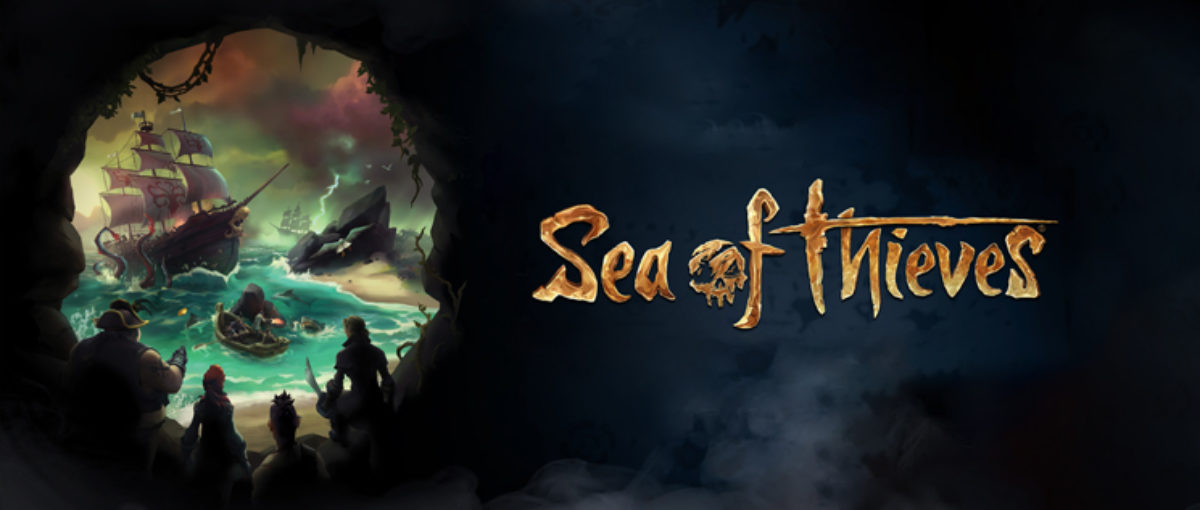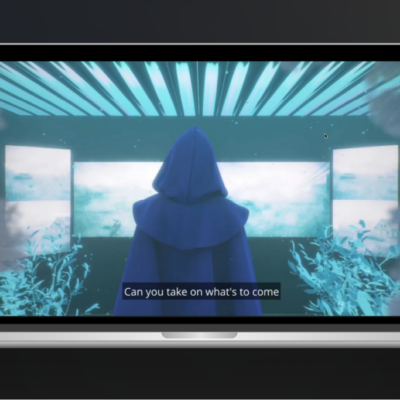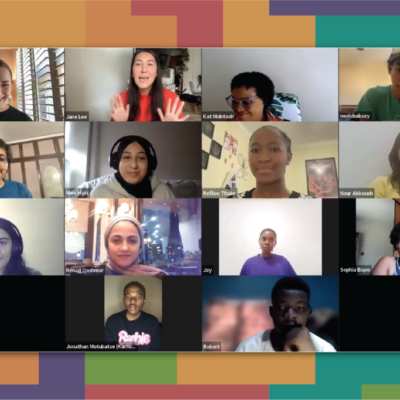
Sea of Thieves: Anchored in Positive Design
Sea of Thieves (SoT; rated 13+ years), a pirate-themed, open-world game, launched in March of 2018 with over 1,000,000 players ready to set sail on day one. What initially sparked my interest in SoT was an article in US Gamer about how Rare, the development studio, had specifically designed the game to preemptively combat the toxic and trolling behaviors commonly seen in games that feature player versus player (pvp) combat.
It was refreshing to see a developer be proactive rather than reactive to well-known problems. They chose the strategy of encouraging good behavior rather than solely punishing unwanted behavior. For example, each ship has a brig where the crew can detain disruptive teammates by voting. Managing problematic players in other titles usually entails "kicking" or "booting" the player from the game. This is both ineffective at dissuading future negative behavior — as getting removed from the game is frequently the goal of the griefer — but also tends to put the team who just lost a player at a disadvantage.
According to Rare's Design Director, Mike Chapman, the brig system empowers players and disempowers trolls as the only way disruptive players can leave the brig is by having teammates vote to release them or by quitting the game. In other words, Chapman suggests the brig provides an "interesting psychological shift" wherein the focus is on encouraging players to play the "right way" rather than using punishment tactics.
Of course, it's not all fair seas and jaunty jigs. Players can get pretty salty and trolling and griefing do happen — including on sloops, where only two players are allowed at a time, so there's no way to get a majority vote to lock a disruptive player in the brig:

Another avenue of griefing even takes advantage of the brig detainment system. One strategy is to get thrown into the brig and then go AFK (Away From Keyboard). While the troll's character is detained, the player can go off and make a sandwich IRL while their teammates complete quests and earn coin, spoils that the troll still gets even though they did not help earn the rewards.
There have also been issues reported of teams of three setting sail on a four-person galleon in order to be matched with a random fourth player whom they instantly vote to put into the brig. The system has its loopholes, but Rare is actively collecting information about player interactions via in-game telemetry and through the "community hot topics" section of the SoT online forum to inform iteration and improvement efforts.
Even though this positive design isn't perfect at curtailing disruptive behaviors, players' many positive social experiences in the game speak volumes about the culture that's built up around it. Arguably, the game's biggest value lies in its potential for joyful social interactions.
SoT is really meant to be played in multiplayer mode. There's a general consensus online that single-player mode is frustrating, and I certainly found that to be true during my first attempt at playing SoT solo. The learning curve is fairly steep and there isn't a great deal of in-game support to get started. As I was fumbling around trying to figure out how to set my quest, a random player jumped aboard my ship and shot me. R.I.P. me.
The second time, though, I joined a group of friends and really got a taste of the SoT experience. Cooperating with experienced players significantly lessened the learning curve and allowed me to really enjoy just being in the game. Before setting sail, we drank a tankard of grog and watched the world go blurry and our crewmates start swaying. We all pulled out our concertinas and hurdy-gurdies for a quick disembarking shanty. Then we plotted our course, raised anchor, lowered and trimmed the sails, and steered in a northwesterly direction. (Pro tip: turn off your lanterns so you're harder to spot!)

In SoT, players sail together and complete quests to win gold and fame. Image source
When it was time to call it a night, I didn't want to stop. I had pirate-related dreams and was excited to play the next day. Ever the psychologist, I wondered what it was about this game that excited me. What I landed on was that the game felt immensely satisfying. My friend Joe was at the helm while Brian manned the back sails and Allison tended the front sails. I sat in the crow's nest with my spyglass watching for enemy ships. We solved rhyming clues to find the location of a buried treasure, fought skeleton pirates, evaded hostile ships, repaired damage to the hull, and traded treasure chests for coin. It was like an epic adventure with my friends, a digital road trip in a boat.
The components of SoT align with what iThrive Games has found to be meaningful game design — opportunities to: explore a system, exercise agency and autonomy, face incremental challenges, find support even in failure, and connect with other people in a meaningful way.
System exploration: Sailing your sloop or galleon requires an understanding of how the parts of the ship interact, and experimenting with those components changes how the system functions. For example, adjusting the main sail ever so slightly is the difference between cutting through chop at a quick clip or merely chugging along across the waves.
Agency and autonomy: Being an open world, there is ample opportunity for player choice and self-expression. As the player, you choose what you want to do, where you want to go, and how you want to get there, and almost every choice you make feels meaningful and of consequence.
Incremental challenge and good feedback: The game scaffolds quest challenges from easy to more difficult and provides tons of feedback in terms of your status as a player and a pirate.
Support even in failure: Failure in this game happens a lot, and although there is some disappointment at losing a treasure chest or special item, the game doesn't punish you. One of the first times I played, I (accidentally) sunk four different ships. It was frustrating to lose my cargo, but another ship was always provided and I was never left stranded. Even if your character dies, the penalty is not particularly punitive. You spend a few seconds on the Ferry of the Damned and then can rejoin your crew. Also, the world is absolutely gorgeous.

The beautiful world of SoT. Image source
Meaningful social interactions: One of the coolest things about this game is its strong pull towards social and cooperative play. Yes, you can voyage alone, but it's both easier and more fun to sail with a crew. And because it's an open world, social interactions are not limited to those in your party.
"Bringing players together in a multiplayer game, creating new bonds, making new friends, that's this game in a nutshell, that's what we want to do." - Joe Neate, Executive Producer
Here's an anecdote from an SoT player (shared with me by @Lvl25Magikarp via DM on Twitter) about his encounter with some friendly strangers:
[My friends] and I were going to an outpost to sell our loot. Instead of pulling anchor, we slammed straight into dock where another ship was unloading. Both teams were screaming into our mics that we were all friendly. Sold our stuff then joined them on their ship for a while! We sank a few ships together and ended up facing a skull fortress. We agreed to split the loot 50/50. We expected them to be true pirates and steal our half but we all kept true to our promise and sold the loot without issues. We had hours of random shenanigans and laughs with people we had never met before. It felt like we had known each other for years. After the initial suspicion went away, we all got along extremely well and the crews integrated pretty flawlessly.
And another example:
As a solo sloop, I wasn't looking to pvp or get caught in any prolonged combat, so when a galleon pulled up close to me, I did the only logical thing. I waved. Next thing I knew I was surrounded by three well dressed sailors, playing instruments and dancing. So i did the logical thing. I started playing along with them All of a sudden, a well dressed captain walks up to me, blue gold garb, with a very large hat. He turns on push to talk and asks, "Hello there ltroyal! Have you heard the word?" "what word" I respond?
"Why?! The word of ARRRRR. KELLEY!"
And with the end of that proclamation, the group of 4 burst out dancing while the captain blasted Ignition - Remix into push to talk.
After dancing for a couple minutes, a little singing, and some grog. The song was over, and the captain told his crew to go back to the ship. "Arrrrrrr I think I'll stay with you ltroyal." "You sure you don't want to go back to your ship?" I responded, kind of confused. After the galleon with the 3 crew sailed away, it was me and that captain.
Of course he started playing the titanic theme, ran to the front of the boat, "hold me ltroyal."
About 15 minutes later, we ran into another sloop, which opened fire on us. But without missing a beat, the captain starting blasting the Pirates of the Caribbean theme song. After hard combat, a unlucky cannon ball blew the captain off the boat, where he boarded the other boat, and was slain so that I could get away. As he I was sailing away, I could hear him yell "GO ON LTROYAL, I'VE GOT THEM NOW!"
I will never forget you captain, preacher of the word of ARRRR. Kelley, and truly unique, kind player. You proved that this game can be an amazing sandbox for those who put their minds to creating unique, fun encounters. And I bought SOT instantly after logging off for the day.
These kinds of social interactions foster a sense of togetherness, connection, and community which, even in brief encounters, can have positive effects including increased happiness, confidence in our ability to connect with others, and feelings of social engagement, and decreased feelings of loneliness and isolation.
Sharing spaces with friendly, kind strangers has been shown to increase optimism and self-esteem, make us feel safer, and help people generally enjoy their lives more.

Player leaves a treasure chest for a random player to find and trade in for coin. Image source
SoT's focus on deep and consistent social interaction requires of players the kinds of robust social and emotional skills we hope teens will develop: communication, collaboration, and cooperation. Other skills such as planning, organization, good decision making, and foresight are crucial to navigating the seas. The game creates the opportunity space for players to form, disband, and reform communities and foster a sense of camaraderie and connection. Flaws aside, that's gaming at its best.

